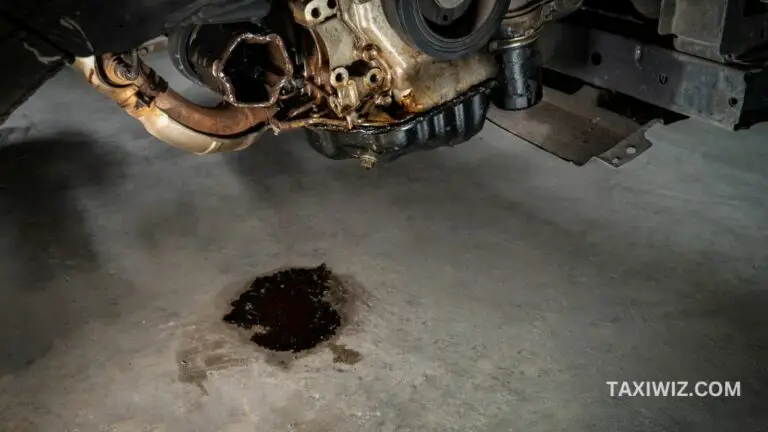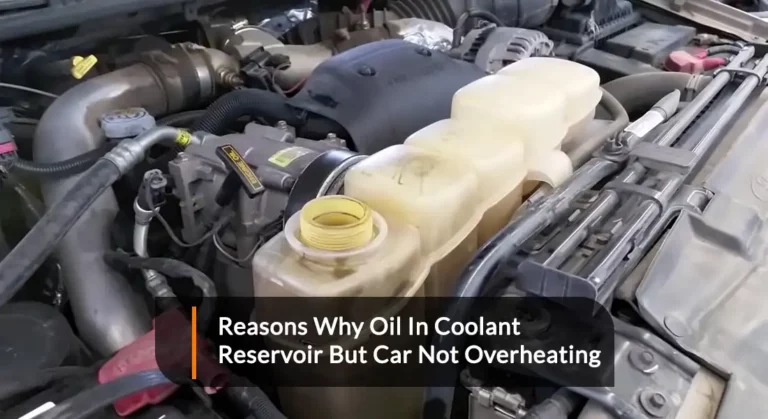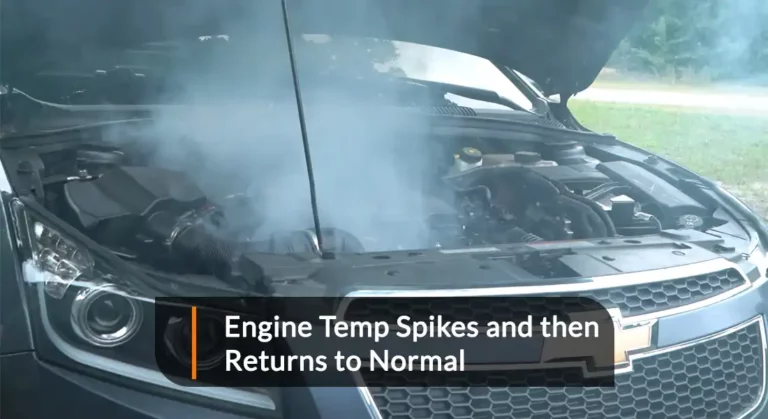Smelling Antifreeze Through The Vent –Diagnose, Causes & Fixes!
Every car needs antifreeze throughout the year to keep the engine cool, protecting it from overheating and freezing the coolant in cold weather. However, this essential engine coolant is prone to leaking because it has to flow through different components. And when it leaks, you may smell the antifreeze through the vent.
So what causes smelling antifreeze through the vent? In most cases, a faulty heater core or blown head gasket is usually the culprit. Another cause of the smell is a cracked coolant reservoir, radiator, and radiator hoses. In addition, it could be a faulty water pump, damaged or loose radiator cap.
So then, how do you diagnose antifreeze problems? Stay here to find out this and how to get rid of the antifreeze smell.
Causes and Solutions of Antifreeze Smell Through The Vent
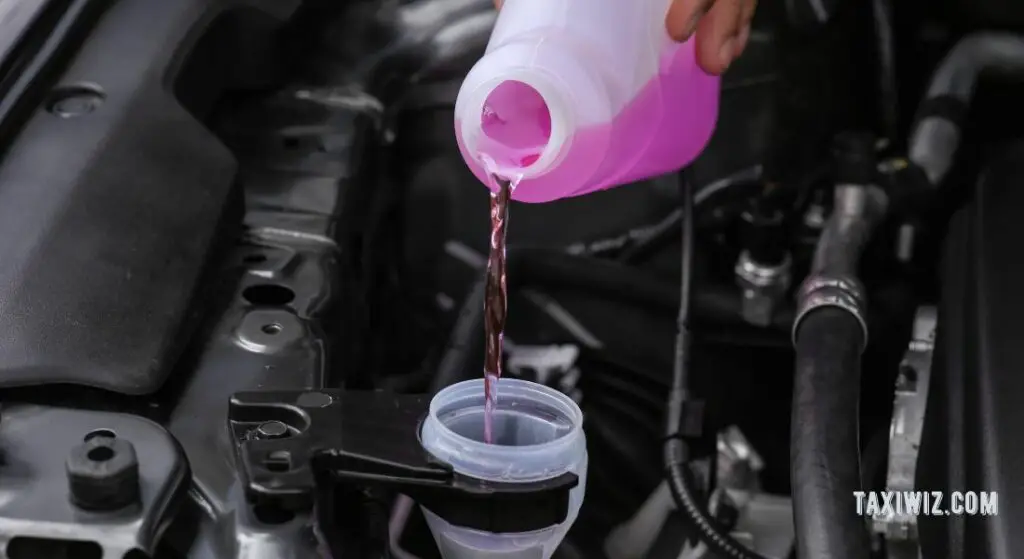
Antifreeze smell coming through the vent can be due to many reasons. Below are the causes and solutions in brief.
| Causes | Solutions |
| Faulty Heater Core | Unclog the heater core |
| Seal the leaks | |
| Heater core replacement | |
| Blown Head Gasket | Use a sealant |
| Replace the gasket | |
| Cracked Coolant Reservoir | Seal the crack |
| Replace the reservoir | |
| Damaged or Loose Radiator Cap | Tighten the cap |
| Replace the cap | |
| Cracked Radiator Hoses or Faulty Radiator | Use adhesive |
| Replace the radiator and hoses | |
| Faulty Water Pump | Replace the pump |
How To Diagnose Antifreeze Smell Coming Through The Vent?
When you smell antifreeze through the vent, you might wonder where it is coming from. So, here are tips to help you with the proper diagnosis.
- Step 1: Examine the coolant levels while the engine is cold. If low, it could be leaking, causing the antifreeze smell.
- Step 2: If the coolant levels are optimal, check under your vehicle’s hood for puddles of lime-green, blue-green, orange, or pink.
- Step 3: If there are no puddles, drive your car until it is warmed up and park it on a dry driveway. Shut it off, and after around 15 minutes, check under the hood for a fresh puddle of antifreeze liquid.
- Step 4: In case there are no puddles, check if the radiator hoses are wet with oil droplets or water.
- Step 5: Inspect the hose clamps and radiator cap for signs of looseness and tighten them.
- Step 6: Check if your car’s carpet is damp or the windows are fogging. This is usually a sign of a faulty heater core.
Troubleshooting Smelling Antifreeze Through the Vent

If smelling antifreeze through the vent, your vehicle likely has a coolant leak. Typically, the coolant fluid has a sweet smell. However, the leak may occur for various reasons, such as:
1. Faulty Heater Core
Your car’s heater core uses heat from the engine coolant to heat the air in the vents, keeping the cabin warm. Unfortunately, the heater core may become faulty due to age, low coolant levels, and corrosion. And once it becomes defective, it could lead to a coolant leak into the car cabin and antifreeze scent through the vent.
Solution 1: Unclog the Heater Core
If the heater core is only clogged, you just clean out the blockage, and here is how to do it.
- Step 1: Unhook the heater hoses
- Step 2: Direct the inlet hose down toward a container
- Step 3: Use a garden hose or air compressor to flush out all the dirt through the outlet hose
- Step 4: Reconnect the heater hoses and refill the coolant system
Solution 2: Seal The Leaks
If it is only a small leak, you can seal it to eradicate the antifreeze smell through the vent. You just buy the right sealant product formulated for fixing these leaks.
Solution 3: Replace the Heat Core
When the leak on the heater core is significant, you must replace it. To do the replacement:
- Step 1: Drain the coolant
- Step 2: Disconnect the heater core hoses
- Step 3: Remove the dashboard, antenna cable, airbag, and steering column
- Step 4: Take out the old heater core and install the new one
- Step 5: Reassemble all parts removed and refill the cooling system
If you are planning to do the heater core replacement yourself, the video below is a must-watch:
2. Blown Head Gasket
A head gasket provides a secure seal between the cylinder head and the engine block. The gasket seals in oil and coolant so they don’t seep into the cylinders.
If the head gasket blows between the coolant passage and cylinder, it may leak coolant. Consequently, you may smell antifreeze through the vents or notice bubbling in the coolant reservoir or radiator. This may also be accompanied by engine overheating and white smoke from the tailpipe.
Solution 1: Use a Sealant
An easy and effective way to fix a blown head gasket is to use a sealant in your vehicle’s radiator. The sealant helps seal the leak without having to disassemble the engine.
Step 2: Replace the Head Gasket
If the head gasket is damaged beyond repair, you must replace it. However, replacing head gaskets is one of the toughest repairs on an engine. This is because it requires the removal of many parts, careful cleaning, and reassembly of the engine components. Therefore, this is not a job for the average DIYer.
3. Cracked Coolant Reservoir
Also known as an overflow tank, a coolant reservoir stores excess hot coolant fluid produced due to engine heat. Due to boiling coolant or old age, the reservoir may develop cracks over time, causing coolant leaks. Consequently, you may smell antifreeze through the vent. And of course, the coolant levels may reduce.
Solution 1: Seal the Crack
For minor cracks, you can apply epoxy or a plastic welding product onto the leak for a complete seal.
Solution 2: Replace the Reservoir
In case of severe cracks, replacing the overflow tank would be the best solution. This is how it’s done:
- Step 1: Drain the coolant and disconnect the coolant hoses
- Step 2: Unfasten the lower reservoir bolts and remove the cracked coolant reservoir
- Step 3: Install the new reservoir and coolant hoses
- Step 4: Refill the coolant
4. Damaged or Loose Radiator Cap
Apart from sealing the cooling system, a radiator cap regulates the pressure of the hot coolant in the radiator. If the cap is damaged or becomes loose, coolant may seep out. And once the engine is warmed up, you may notice an antifreeze scent coming through the air vents.
Solution 1: Tighten the Cap
To tighten the radiator cap, push down the cap as you turn it clockwise. Once you feel resistance, stop.
Solution 2: Replace the Cap
If the radiator cap is damaged, you can quickly replace it to eliminate the antifreeze smell. You just need to unscrew the damaged cap and screw on the new one.
5. Cracked Radiator Hoses or Radiator
Radiator hoses carry coolant between the engine and radiator and back toward the water pump. Conversely, a radiator removes excess heat from the engine.
Because of being exposed to constant pressure, the radiator and the hoses may develop cracks. This may lead to coolant leaks and an antifreeze smell via the vent.
Solution 1: Use Adhesive
If the crack is pinhole size, you could use adhesive, such as super glue or tape to seal the hole. Simply apply the glue on the crack or snugly wrap the insulating tape around it. In the case of a cracked radiator, you can use an epoxy-resin sealer.
Solution 2: Replacement
Sometimes, both the radiator and hoses may develop severe cracks. In such a case, you must replace them. Just follow these steps:
- Step 1: Drain the coolant
- Step 2: Loosen the hose clamps and remove the damaged radiator hose
- Step 3: Remove the cooling fan and disconnect the transmission cooler lines to get access to the radiator
- Step 4: Unscrew the mounting bolts on the radiator to remove the radiator
- Step 5: Install the new radiator, old transmission cooler lines, and cooling fan
- Step 6: Install new radiator hoses and fill the radiator with coolant
6. Faulty Water Pump
Your vehicle’s water pump is designed to push coolant from the radiator into the engine and back. Over time, the seals and gaskets that connect the water pump to the cooling system usually wear out, causing a coolant leak. When this happens, you may notice a sweet smell coming through the vent of your car’s AC or fans.
Solution 1: Replace the Water Pump
The best solution is to replace the water pump, including the worn-out gaskets. Follow these steps:
- Step 1: Drain the coolant
- Step 2: Disconnect engine belts and other components blocking the pump from gaining its access
- Step 3: Remove the water pump and old gasket
- Step 4: Install the new gasket and new water pump
- Step 5. Reinstall all parts removed and refill the coolant
Final Lines
Before taking your car to the mechanic, you could quickly diagnose the antifreeze smell coming through the vent at home. This involves checking for any signs of coolant leaks. With that said, smelling antifreeze through the vent can be due to a faulty heater core or a blown head gasket.
It could also be due to a faulty water pump, cracked coolant reservoir or radiator hoses, faulty radiator, and loose radiator cap. Nothing to worry about, though! After all, you can eliminate the smell by repairing the leaking parts or replacing the damaged components following our given solutions above.

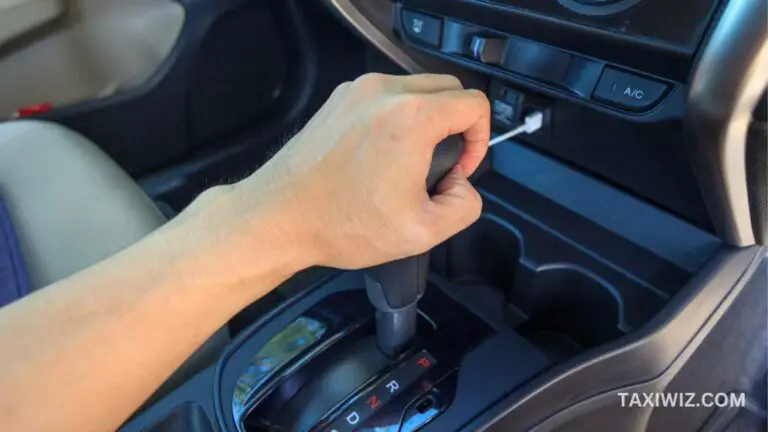
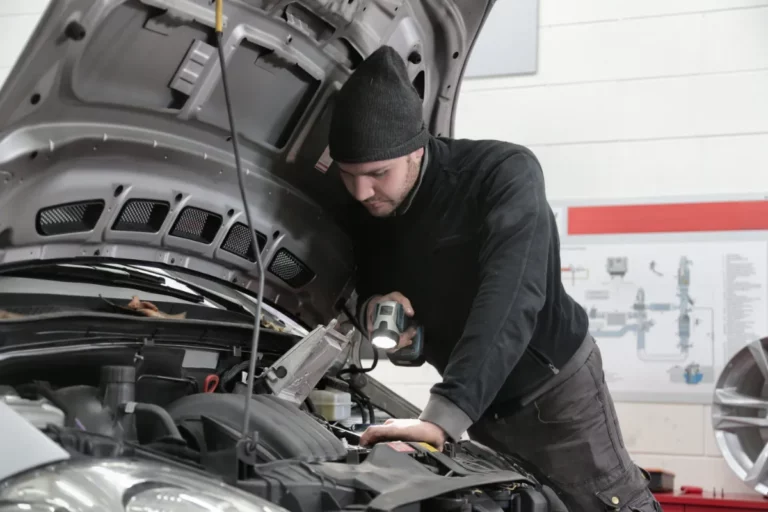
![Brake Shudder After New Rotors And Pads [ Cause + Fix]](https://taxiwiz.com/wp-content/uploads/2023/08/Brake-Shudder-After-New-Rotors-And-Pads-768x426.jpg)
